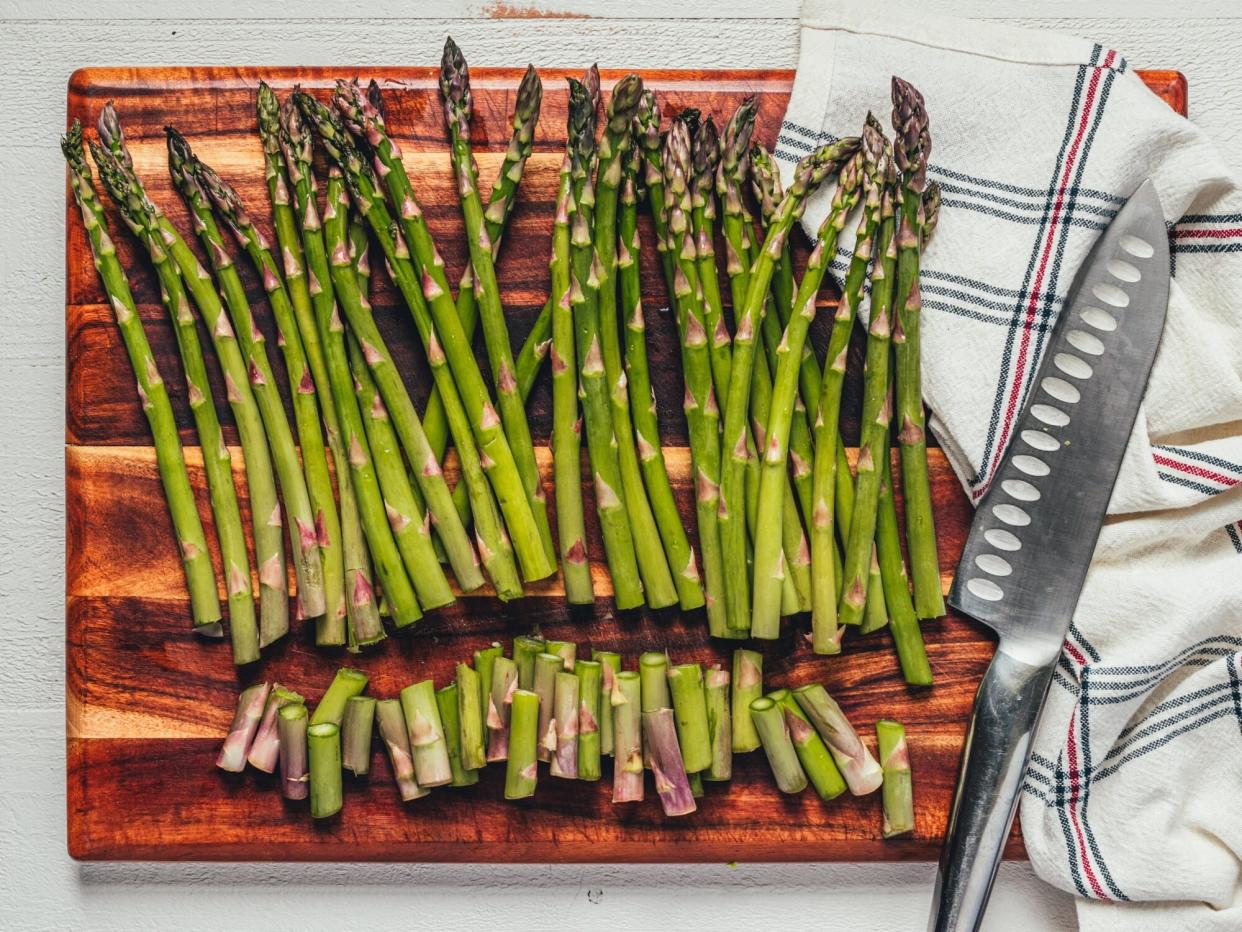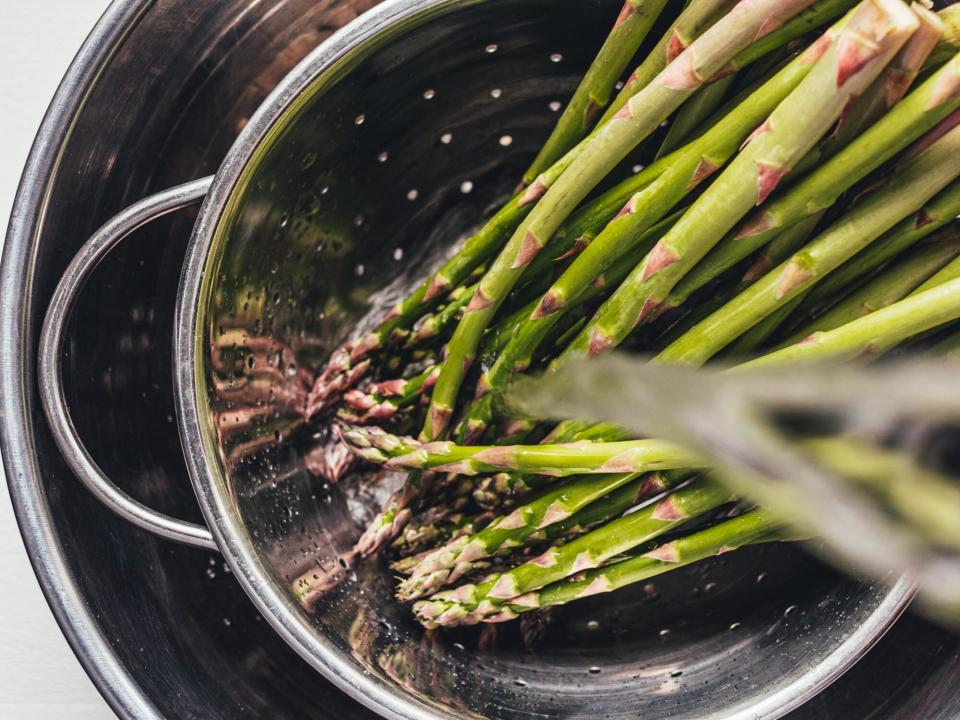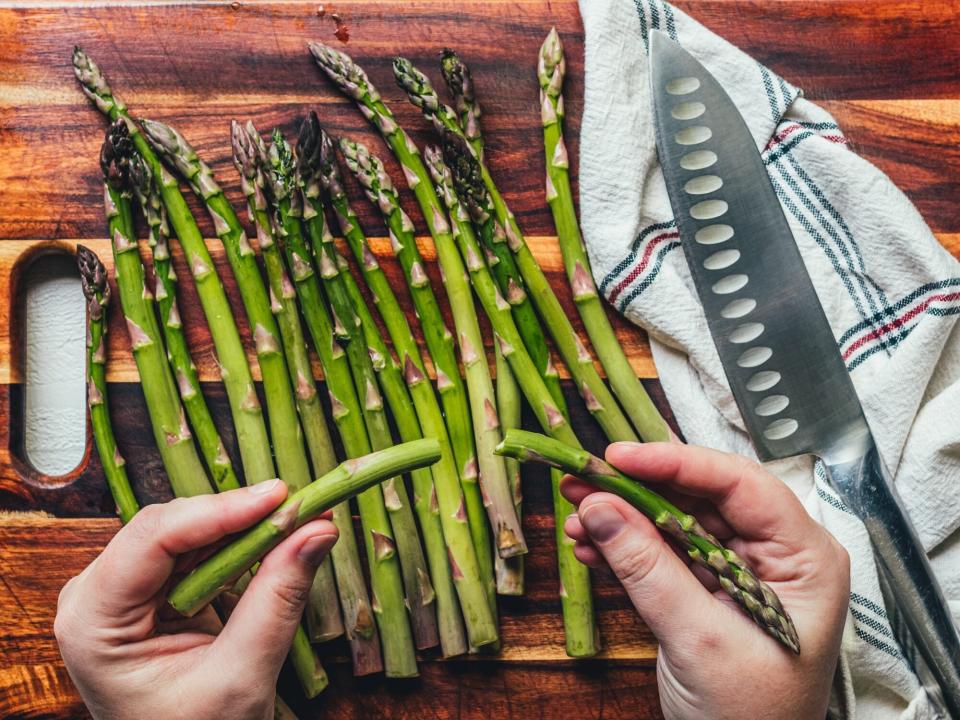The Right Way To Trim Asparagus

Courtney West / Southern Living
Asparagus celebrates the start of spring. As days warm up and winter gives way to sunshine and blooming flowers, bunches of vibrant green stalks pop up at farmers' stands and grocery stores.
But whether you prefer your asparagus on the thick or thin side, it's essential to trim the pale ends of each stalk because they tend to be woody and tough. Learning how to trim asparagus properly will help ensure every asparagus dish is enjoyable for everyone at the table.
If you grew up snapping green beans, you might think bending each asparagus stalk until it snaps in half is the best practice. It's a simple method and doesn't even require a knife. The stalk will break right where it starts to get tough—or that's what you thought all these years.
The truth is that the bend-and-snap method can actually waste delicious asparagus. (Sorry, snappers!) Where a stalk breaks depends on the overall thickness of the stalk (skinny stalks are more flexible), how you bend it, and even how fresh the asparagus is (super-fresh asparagus tends to be more rigid). So although it might look like you're getting rid of the tough ends, you're probably also snapping off too much of the edible green stalks.
How To Trim Asparagus
The best way to trim asparagus is also the most obvious: with a chef's knife and cutting board. Line up all the spears in a row and slice off the ends simultaneously. It would be best to cut right where the stalks turn from white to green.
If you're still not convinced, compare side-by-side with two asparagus stalks of the same length and size. Use the bend-and-snap method with one stalk and see how it compares to a stalk trimmed with a knife. The snapped stalk will probably be a few inches shorter.
And when you're talking asparagus—which can be pricey, even in season—a few inches can make a big difference!
A Step-by-Step Guide for Properly Trimming Asparagus
To get the most asparagus for your buck, follow this step-by-step guide for learning how to trim asparagus. Before you start, sort through your asparagus bundles and remove any stalks that look shriveled or dark. They won't be fit to cook.

Courtney West / Southern Living
1. Wash the Spears
Unwrap or untie the asparagus bundle. Rinse all spears in a colander under cool water. Shake loosely to remove as much water as possible, then pat dry with a paper towel or tea towel to remove excess water. Too much water on the asparagus will prevent oil and seasoning from adhering to the vegetables.

Courtney West / Southern Living
2. Trim the Asparagus
Once dry, arrange the asparagus stalks so that the woody ends align. Then, use a large chef's knife to trim one to two inches off the stalks.
Discard the woody asparagus ends, or save them for stock.
3. Trim, Don't Bend
Asparagus won't naturally break at the right point for trimming. Depending on the thickness and freshness of the asparagus, you could get a snap trim that leaves behind many edible sections. The best way to cut is with your knife to keep as much asparagus as possible.

Courtney West / Southern Living
Do You Need to Trim Asparagus?
It is not necessary to trim asparagus. On some spears, especially fresh, pencil-thin stalks, the woody ends may not tenderize once cooked. But on larger stalks, the ends of the asparagus are often woody and dense—Which makes them difficult to chew, no matter how soft the asparagus is after cooking.
When in doubt, trim the asparagus ends so you aren't left chewing for far too long on an inedible piece.
Related: Strange Smell After Eating Asparagus? Here's Why That Happens

